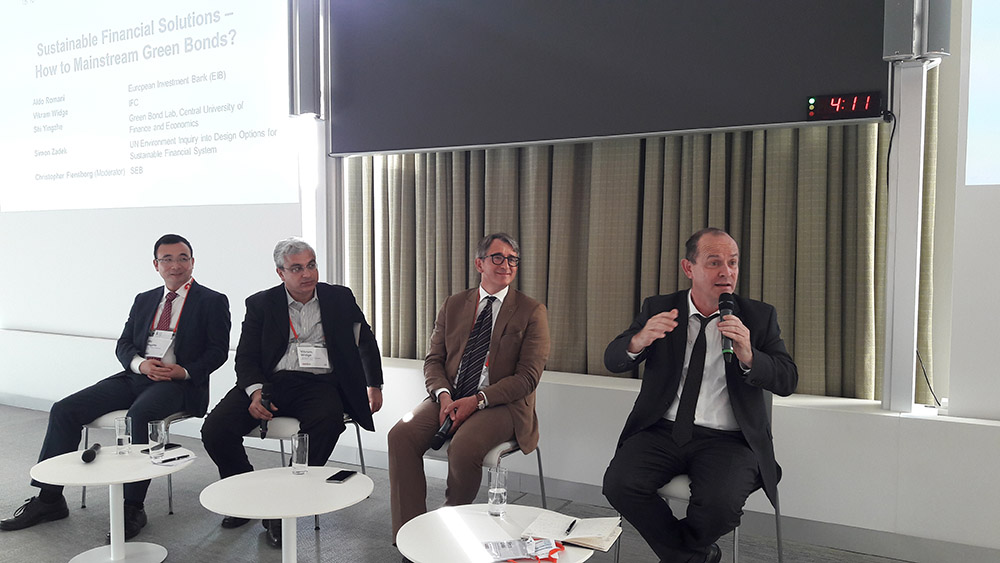
Panel discussion: Sustainable Financial Solutions – How to Mainstream Green Bonds?
29 May 2017, Berlin
The aim of this year’s T20 Summit under the German G20 Presidency was to provide 20 Solutions for the G20 by formulating research and practice-based, action-oriented policies and business strategies designed to tackle global problems such as how to accelerate the transition towards more sustainable economies. Therefore, the T20 Summit brought together policy makers and the world’s leading thinkers from G20 think tanks, academia, business, finance and international organizations.
Jointly with the think tank network Economic Policy Forum (EPF), EMDF organized a high-level dialogue looking into Sustainable Financial Solutions – How to Mainstream Green Bonds? The panel, which was moderated by Christopher Flensborg, Head of Climate & Sustainable Financial Solutions at the Swedish bank SEB, was comprised of a round of four very distinguished speakers, who all have their stake in fostering green bond market development.
Simon Zadek, Co-Director of the UNEP Inquiry into the Design of a Sustainable Financial System, set the scene by giving the macro picture on infrastructure investment needs and pointing out the failure of the financial sector in intermediating between these capital needs and supply. Green bonds, he observed, have assumed an important role in triggering broader factors of change in international capital markets.
Vikram Widge, Head of Climate Finance and Policy at the International Finance Corporation (IFC), part of the World Bank Group, emphasized the need to scale up the use of green bonds at speed by setting a binding international standard, introducing pricing advantage mechanisms, building capacity in emerging markets, and further innovating the green financial product market.
Shi Yingzhe, Director of the Green Bond Lab at the Central University of Finance and Economics (CUFE), shared the experiences made in China, which has become just within one year the largest market for green bonds through a policy-driven top-down approach. He also explained the inclusion of so called clean coal in China, which needed to be assessed in light of China’s energy structure and development status.
Aldo Romani, Deputy Head of Funding of the Capital Markets Department at the European Investment Bank (EIB), re-emphasized the revolutionary character of green bonds in having kick-started a process that fosters accountability and transparency in the financial sector and established a platform for politics, finance and civil society in a very pragmatic way. At the same time, he mentioned the need for a clear, common and comprehensive taxonomy in terms of a classification scheme, while a flexible assessment may allow to take diverging conditions and requirements into consideration.
While addressing the policy recommendations developed by the T20 Task Force Climate Policy and Finance in a very tangible and concrete way, the panelists equally succeeded in providing an understanding of the abstract value of green bonds in the greater context of transforming our financial systems. Wrapping up the session, Christopher Flensborg from SEB underlined the merit of green bonds in the task of mobilizing people to activate capital for sustainable investments.
Press
- Blog entry: This Year’s G20 Think 20 Summit in Germany: Its Most Underrated Discussion is Why We Don’t Have Global Solutions Yet by Yelena Novikov: „arguably the most practical discussion of the Summit “
Photo
The photo shows (from left to right): Shi Yingzhe (CUFE), Vikram Widge (IFC), Aldo Romani (EIB), and Simon Zadek (UNEP Inquiry).